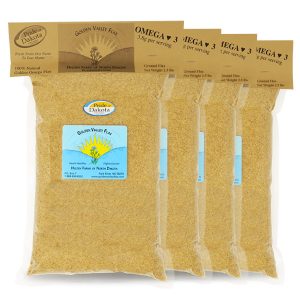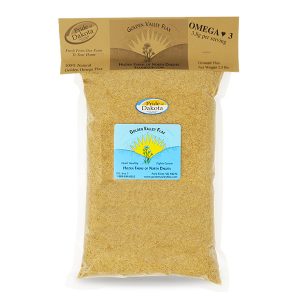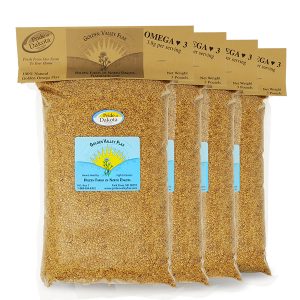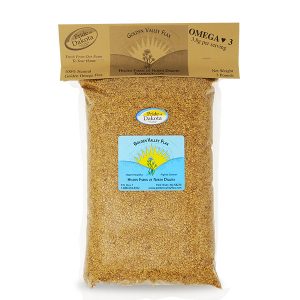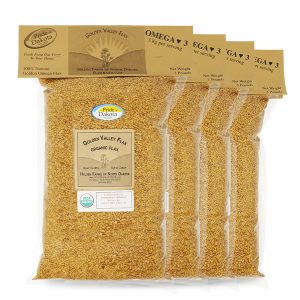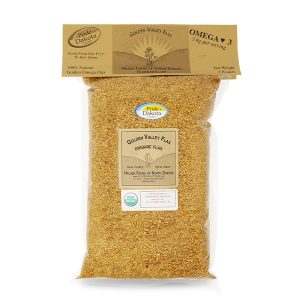
by Esther Hylden, RN
Golden Valley Flax
Intro paragraph here.
- Flax is a great source of fiber. One tablespoon of flax provides us with 8 grams of fiber. Fiber helps to prevent constipation and colon cancer.
- Flax is an amazing plant source of omega 3 fatty acids. A diet high in omega-3s reduces the risk of heart disease and strokes. Flax helps to lower cholesterol and is a natural anti-inflammatory agent.
- Flax contains lignans. Lignans may help to reduce the risk of cancer.
- Flax is high in protein. 3 tablespoons (1 ounce) of flax contains 6g of protein.
- Flax supports weight loss. Flax is a low-calorie food that is high in fiber and, therefore, helps to make us feel full. We feel full longer when we eat include flax in our daily diet.
- Flax is a great source of vitamins and minerals. Flax contains most of the B vitamins, potassium, magnesium, manganese, and calcium.
How to Incorporate Flax in Your Diet
Substitute flour with flax. One way to incorporate flax into your diet is to bake with it. You can substitute flax for 1/4 to 1/3 of the flour in anything you bake.
Substitute eggs with flax. You may replace eggs in a recipe with flax. Here is how: 1 tablespoon of ground flax + 3 tablespoons water = 1 egg. Mix it up, let it sit for a few minutes, then add it to your recipe as you would an egg.
Other Flax Articles You Might Like
Easy Flax Recipes





